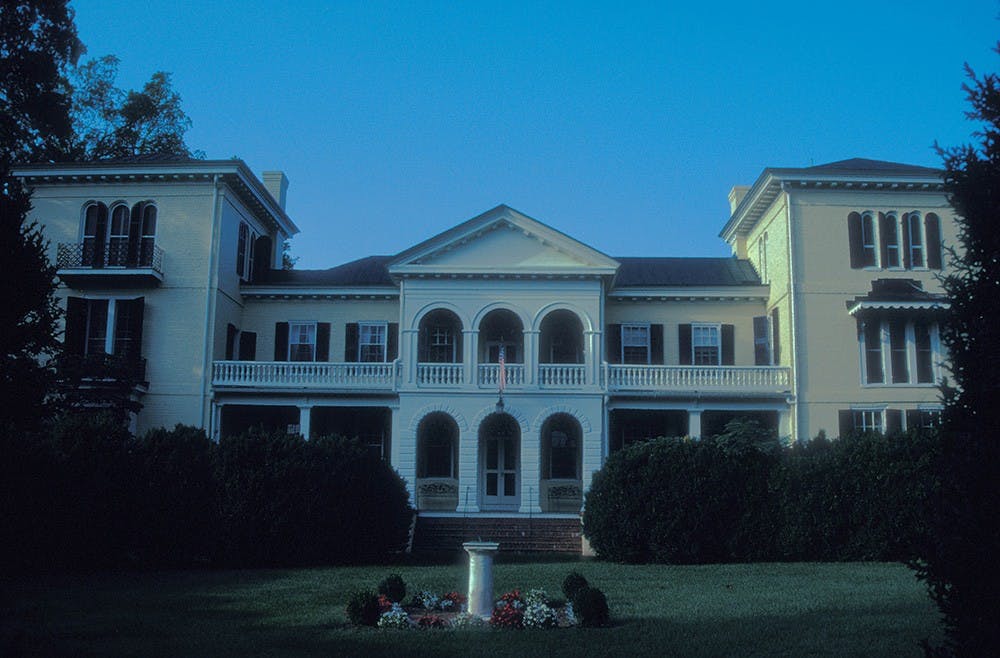Sweet Briar College announced Tuesday it will be closing permanently at the end of the 2015 academic year. The women’s liberal arts college cited “insurmountable financial challenges” as the reason for its Aug. 25 closing.
Located in Amherst, Virginia, Sweet Briar was founded in 1901 and currently enrolls 735 students.
The Sweet Briar Board of Directors said they considered changes to the educational model, such as merging with another institution or becoming coeducational, but ultimately did not see these options as viable.
The college’s $85 million endowment would not have been able to support the scholarships and facility expansions needed to accommodate an influx of male students. Over half of the endowment is restricted, meaning the donations are earmarked for specific purposes.
Paul Rice, chair of the board at Sweet Briar, said in a video message Sweet Briar had exhausted its options from both an operational and educational standpoint.
“We instituted significant cuts in the operating budget, deferred maintenance on facilities, and drove initiatives to increase enrollment,” Rice said. “Unfortunately, it is now clear that none of our strategies have provided, nor will they provide, the solutions Sweet Briar would require to continue to operate as a higher education institution.”
*Randolph-Macon College became co-educational in 2007Many in higher education have approved of the Board’s decision and said achieving financial solvency would have led the school to compromise its values and mission. Critics of the closing, including students, are questioning whether more could have been done before officially shutting down.
Assistant Director of Media Relations Jennifer McManamay said this kind of negative reaction was to be expected.
“It’s a natural reaction,” McManamay said. “However, the decision to do this was grounded in reality.”
Sweet Briar’s enrollment fell this past year despite an increase in applications. With the changing landscape of higher education, many small institutions have found they struggle to compete with large public institutions that offer a broader range of professional degrees.
Last year, Virginia Intermont College, which began as an all-women’s school, also closed its doors amid flagging enrollment.
At Virginia Intermont College, Interim President Art Rebrovick is faced with the task of closing the college. He stepped into his position the day after the school’s graduation date last year. Currently, Virginia Intermont has almost completed the normal phase-down process with the main focus on managing the property.
“We are trying to bring another educational institution to the property,” Rebrovick said. “Otherwise, we will find another use for the campus.”
Facing similar problems, Sweet Briar may look to Virginia Intermont for guidance in the phase-down process.
“Some of the pressures on Sweet Briar were similar to those on Virginia Intermont, such that as the finances become tougher and enrollments aren’t quite as large as they want them to be,” Rebrovick said. “It’s important for them to change and be adaptable to the current environment.”
With the closing of an old institution with a large alumni base, backlash is expected throughout the community. Rebrovick categorized the response to Intermont’s closing as a mix of sadness and disappointment.
“[Virginia Intermont] was 130 years old and a very important part of the community,” Rebrovick said. “There’s a real sadness for everyone; it is not one that any student, alumni, or any other member of the community wants to see.”
Rebrovick commended the Sweet Briar Board of Directors for handling a decision so fraught with emotion.
“From my perspective, I think the leaders of Sweet Briar have handled a very difficult situation in a professional manner,” Rebrovick said.
Sweet Briar President James Jones said the Sweet Briar Board of Directors is focusing on ensuring funds will be available to provide faculty with severance packages, pay off the school’s debt and aid the student transfer process.
“Our immediate focus is to help our students transfer to other colleges and universities, and to support our faculty and staff through the process of closing our college,” Jones said.
Although this semester will be the last, Sweet Briar will stay open for a summer term to give students the option to finish a degree or earn more transfer credits.
Mary Baldwin College — also an all-female institution — plans to offer Sweet Briar students the opportunity to finish their college education at Mary Baldwin, College President Pamela Fox announced Tuesday.
Mary Baldwin is contacting Sweet Briar freshmen, sophomores, juniors and recently accepted high school students with offers of expedited transfers. Fox says this action comes to give students who wish to have an all-female college experience the opportunity to do so.
University Class of 1970 alumnus Bill Creason said the relationship between the University and all-female colleges — such as Sweet Briar — was quite different when he was in Charlottesville, as the University did not accept its first class of female students until 1970.
“I was at school before we had women in the incoming classes, so other than some nursing students it was basically an all-male institution for practical purposes,” Creason said. “So, if you wanted to date or see a female you’d have to either go down the road or they could come up to the University for parties or that sort of thing.”
Creason said his wife, a Sweet Briar alumna, was shocked by the closing.
“They really had no pre-warning that this was a possibility, [though] they knew that most of the women’s colleges were having a difficult time with attracting students,” Creason said. “It took a lot of graduates by surprise when they made the announcement that they were going to close it down.”







